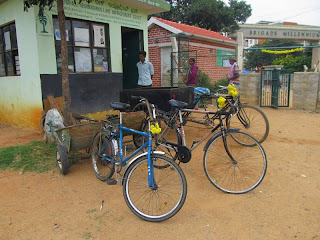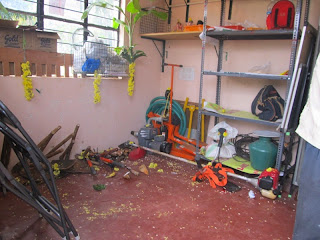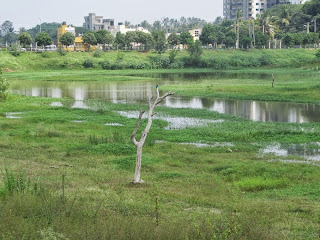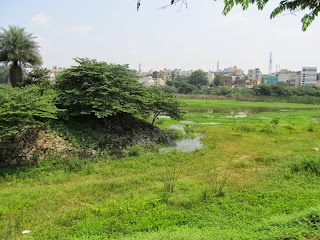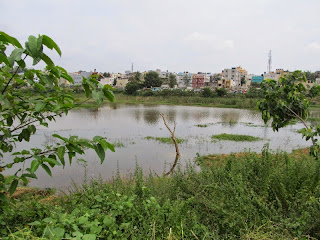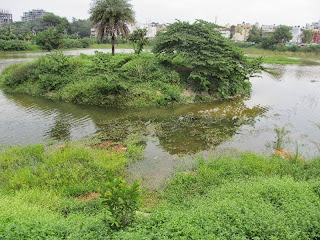If Dussehra 2013 was unique for PNLIT with a South City resident replicating Puttenahalli Lake in her Golu, this year it was a lady from Brigade Millennium who took us by surprise. Mrs. Anjana Shivakumar wanted to donate to PNLIT, the money she would otherwise have spent on gifts for her guests invited for Haldi kumkum!
What better celebration can there be of Mother Nature than by taking care of a lake? Mrs. Shivakumar and her 40 friends chanted Lalitha Sahasarnama invoking the Mother Goddess. When it ended, she announced that she was giving Rs. 5000 to PNLIT towards nurturing the lake. We hope at least some of them (and many of you, readers) would follow her example and donate to the upkeep of the lake.
To reciprocate her thoughtful, indeed unique, gesture, PNLIT has “gifted” her and her friends with a tree, a Sheesham , more popularly called Indian Rosewood. What’s special about this particular tree is that it was brought from Golden Temple, Amritsar when our fellow trustee Arathi Manay last visited the shrine. It therefore occupies the pride of place in the viewing deck. We are renaming this tree “Haldi kumkum tree” for a year and shall soon put up a board to this effect.
Haldi kumkum tree (Sheesham)
PNLIT’s Dussehra celebration was a small, simple affair confined to one day – Ayudha Puja. Not surprising since we have a whole array of garden equipment and tools!
Ayudha Puja
Every drop of rain that falls sends our hope soaring. How much of it will enter the lake is the first question that comes to our minds. The rain last evening was no different. Today morning we went to the lake to check the level against our own personal markers (a stone sticking out of the water, distance between a dead tree and the edge of water, etc.) At first glance it did indeed seem that the level had gone up considerably from the last such downpour on Sept. 25th. Two of the dead trees we’d planted in the lake bed were now standing in water! The water had not yet circled the base of the island but yes, the two ends had come a little closer. Compared to this time last year, however, the level is far too low!
After the rain, Oct 6, 2014
After the rain, Oct 8, 2013 (a year ago)
The birds were not many too – only a pair of Spot Billed Ducks, a few Common Coots and the Swamp Hens. Just when we were sighing over the low water level and the few birds, there was a flash of bright green over our heads! Ah ha! A Barbet? Just that sight was enough to elevate our morale. We certainly hope that the divine will shower more rain and send more birds flocking to our lake in the coming months!

